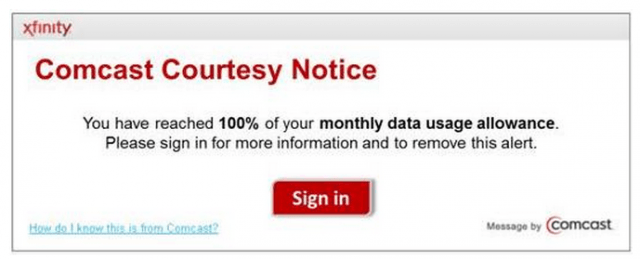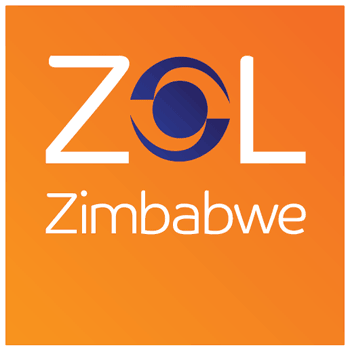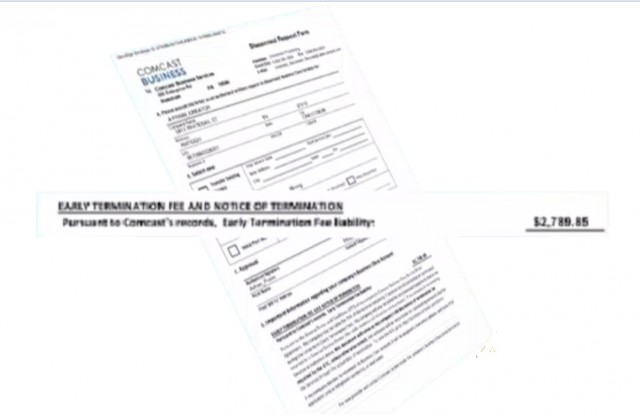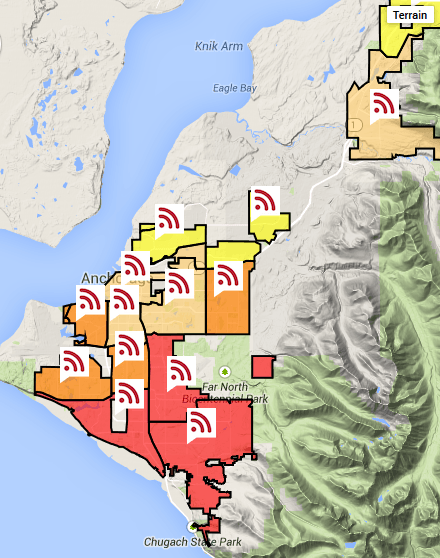
Phillip “Comcast lost its case for usage caps” Dampier
With today’s announcement Comcast intends to bring unlimited 2Gbps broadband to as many as 18 million homes across its service area, one thing is clear — if Comcast is not worried about the impact of that many potential customers consuming 2Gbps of bandwidth, there is absolutely no justification to impose usage caps and allowances on any Comcast customer.
A frequent justification for usage caps and usage billing is to guarantee fair access for all customers on a shared, congested network. Another is to help defray the cost of broadband expansion. But Comcast’s new super-speed tier will have no usage cap and customers are invited to use it as much as they like for a fixed price. Clearly, a customer maxing out a 2Gbps connection to upload and download enormous amounts of content, say on a peer-to-peer network, will have a far greater impact on Comcast’s infrastructure than a user with a basic 25Mbps Internet connection. Yet today in Atlanta, Comcast is asking its 25Mbps customers to stay within a 300GB usage allowance, if they want to avoid an overlimit penalty of $10 for each 50GB block of additional usage.
Comcast does not like Stop the Cap! calling Comcast’s “data usage trials” what we believe them to be: “usage caps.”
In response to our testimony before the New York Public Service Commission last year regarding its application to acquire Time Warner Cable, Comcast objected to our claim it was placing usage allowances or limits on its broadband customers.
“Comcast does not have ‘data caps’ today,” Comcast told the PSC in its filing. “Comcast announced almost two years ago that it was suspending enforcement of its prior 250GB excessive usage cap and that it would instead be trialing different pricing and packaging options to evaluate options for subscribers—options that reflect evolving Internet usage and that are based on the desire to provide flexible consumption plans, including a plan that enables customers who want to use more data the option to pay more to do so as well as a plan for those who use less data the option to save some money.”
Yet Comcast’s desire to offer “flexible” usage plans becomes very inflexible when customers ask for unlimited service. Comcast has refused to offer such an option in several trial markets where usage caps are once again being tested.
 Last May, Comcast vice president David Cohen emphatically stated usage caps and usage-based billing were all about “fairness,” telling investors: “People who use more should pay more, and people who use less should pay less.”
Last May, Comcast vice president David Cohen emphatically stated usage caps and usage-based billing were all about “fairness,” telling investors: “People who use more should pay more, and people who use less should pay less.”
Those signing up for 2Gbps service will be in a position to use far more bandwidth and data than any other Comcast customer subscribing to a lower speed broadband tier, yet will not be asked to pay more for using more or pay less for using less. They will be signing up for a simple to understand unlimited usage plan most Comcast customers want that will carry no billing surprises. At the moment, that is the only unlimited tier residential plan a Comcast customer in Atlanta will be able to buy.
Also turned on its head is the idea that customers who use the most bandwidth or cost Comcast the most should be contributing more to help Comcast pay for network upgrades, but once again this will not be the case for 2Gbps customers in Atlanta. They will cost Comcast a fortune as the company rips out its existing HFC (coaxial cable) infrastructure and replaces it with fiber to the home service. Yet the 25Mbps customer still using decades-old coaxial cable is effectively being asked to limit their Internet usage to avoid additional charges while the 2Gbps modern fiber customer is not.
It clearly makes no sense, but will rake in dollars for Comcast as usage continues to grow.
If Comcast’s network can sustain up to 18 million 2Gbps users with no usage cap, it has more than enough capacity to take the limits off every Comcast broadband customer. Comcast must shelve its usage billing trials immediately and remove all usage allowances from residential broadband customers in various test markets where they have been in place for more than a year. Google, Verizon, Time Warner Cable, Cablevision, Charter, and many other broadband providers have found no defensible reason to slap usage limits on their broadband customers. If they can provide comparable speeds and service without a cap, so can Comcast.
Comcast should clearly state it is in the business of providing the best possible customer experience using 21st century infrastructure more than robust enough to sustain usage demands, and compulsory usage caps and consumption billing are incompatible with the company’s goal to provide top-quality, worry-free Internet access.
If Comcast wants to test voluntary discount programs for light users, we have no objection. But customers should always have access to an affordable unlimited option without having to watch usage meters or worry about bill shock.
Comcast needs to do the right thing today and end all compulsory data usage trials across the country and commit to providing unlimited, allowance-free broadband service.
 The two largest telecom companies in Zimbabwe believe broadband access isn’t just an essential utility — it’s a basic human right and they are responding with major upgrade projects that will deliver speedier broadband, sometimes even faster than what most customers in North America can access.
The two largest telecom companies in Zimbabwe believe broadband access isn’t just an essential utility — it’s a basic human right and they are responding with major upgrade projects that will deliver speedier broadband, sometimes even faster than what most customers in North America can access. At the outset in Victoria Falls, Fibroniks will offer unlimited use packages up to 100Mbps, with a commitment customers can access whatever they want, whenever they want, at a guaranteed fixed monthly price. Liquid Telecom already supplies fiber service in the capital city of Harare, but Tudor believes getting into smaller communities in the country is essential.
At the outset in Victoria Falls, Fibroniks will offer unlimited use packages up to 100Mbps, with a commitment customers can access whatever they want, whenever they want, at a guaranteed fixed monthly price. Liquid Telecom already supplies fiber service in the capital city of Harare, but Tudor believes getting into smaller communities in the country is essential.

 Subscribe
Subscribe
 Last May, Comcast vice president David Cohen emphatically stated usage caps and usage-based billing were all about “fairness,” telling investors: “People who use more should pay more, and people who use less should pay less.”
Last May, Comcast vice president David Cohen emphatically stated usage caps and usage-based billing were all about “fairness,” telling investors: “People who use more should pay more, and people who use less should pay less.” A Nashville web developer who signed up for usage-cap exempted Business Class service in one of Comcast’s usage-based billing trial cities received a bill for nearly $3,000 in early termination fees after he was unable to transfer his Comcast Internet service to his new address.
A Nashville web developer who signed up for usage-cap exempted Business Class service in one of Comcast’s usage-based billing trial cities received a bill for nearly $3,000 in early termination fees after he was unable to transfer his Comcast Internet service to his new address.
 Alaska-based GCI has rolled out a free upgrade for customers in Anchorage, Fairbanks, Juneau, Ketchikan, Mat-Su Valley, and Sitka that delivers broadband speeds up to 250/10Mbps.
Alaska-based GCI has rolled out a free upgrade for customers in Anchorage, Fairbanks, Juneau, Ketchikan, Mat-Su Valley, and Sitka that delivers broadband speeds up to 250/10Mbps.
 The speed increases come after its competitor Alaska Communications announced speed increases of its own. ACS sells unlimited access broadband service at speeds up to 50Mbps. ACS has beefed up its copper infrastructure to support faster Internet speeds, starting with 15Mbps introduced across the state in May. Now customers in Anchorage can subscribe to faster tiers including 30 and 50Mbps.
The speed increases come after its competitor Alaska Communications announced speed increases of its own. ACS sells unlimited access broadband service at speeds up to 50Mbps. ACS has beefed up its copper infrastructure to support faster Internet speeds, starting with 15Mbps introduced across the state in May. Now customers in Anchorage can subscribe to faster tiers including 30 and 50Mbps. There is a way out for AT&T U-verse customers stuck dealing with the company’s arbitrary 250GB monthly usage cap — sign up with U-verse reseller DSL Extreme for the same Internet access with no usage caps whatsoever.
There is a way out for AT&T U-verse customers stuck dealing with the company’s arbitrary 250GB monthly usage cap — sign up with U-verse reseller DSL Extreme for the same Internet access with no usage caps whatsoever. Value ($17.95/mo) 768/384kbps
Value ($17.95/mo) 768/384kbps